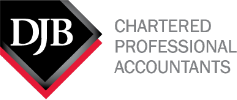In a more globalized world, and especially after the COVID-19 pandemic brought about a seismic shift in our workplaces and the adoption of remote work, emigration has become a more popular option for many taxpayers in the past few years. Emigration also represents the “final departure from Canada” of a taxpayer, and potentially the final opportunity for the Canada Revenue Agency (CRA) to tax a taxpayer, which can therefore mean large tax liabilities. The purpose of this article is to explore some of the more common consequences of emigration of a Canadian taxpayer.
Determination of Residency
Any discussion of emigration pivots around the concept of residency in Canada. In Canada, the Income Tax Act (ITA) taxes Canadian residents on their worldwide income, and non-residents on their Canadian-sourced income.
Per CRA policies and technical bulletins, the most important determinants of residency are significant residential ties, or what are colloquially referred to as the “house and spouse” ties. These ties include whether you keep a dwelling place in Canada available for occupation by you, and whether your spouse or common-law partner, or other dependents, continue to be in Canada (or in a separate country).
After the significant residential ties are assessed, secondary residential ties are then assessed – these include personal property such as cars, furniture, and clothing, any economic ties (like a job or investment accounts), or insurance coverage in Canada.
It should be noted from the above that citizenship does not equal residency – a taxpayer can be a citizen of Canada but not a resident of Canada for tax purposes.
If a taxpayer leaves Canada, and they are determined to have “severed ties” with Canada, they are determined to have ceased residency on that date, i.e. emigrated from Canada.
Consequences of Ceasing Residency
If a taxpayer ceases residency in the year, they will be deemed to have disposed of certain types of capital property, the gain on which will trigger “departure tax”. Under the ITA, any securities, cryptocurrencies, or other investments held will be deemed to be disposed of at their fair market value, , potentially creating a large tax liability.. Notably, Canadian real estate is excluded from this rule.
If the taxpayer holds an RRSP, TFSA, or RRIF, these accounts will be excluded from the deemed disposition. Any withdrawals are likely to be taxed as passive income and subject to the withholding tax requirements discussed below. However, it is important to note that the other country in which the taxpayer is now resident may not recognize the RRSP or TFSA as a tax deferring vehicle, and thus tax any income earned in the plan.
Non-residents earning income in Canada
Employment or self-employment income earned in Canada as a non-resident will be subject to Part 1 tax in Canada, and a regular T1 income tax return is required to be filed.
If passive income, such as dividends, interest, or royalties, is received by a non-resident, such income will be subject to a 25% withholding tax that will be withheld and remitted to the CRA at source. The withholding rate could be lower than 25% for residents from certain countries having tax treaties with Canada.
RRSP, RRIF, OAS, and other pension payments are also subject to a 25% withholding tax. However, an election is available to a non-resident to file a tax return with the CRA and report the income as if they were a Canadian resident, claiming certain tax credits, and enjoying lower tax brackets.
Income from a rental property is usually subject to the 25% withholding tax as well. However, an election is available for a non-resident to file a tax return with the CRA and report the income as if they were a Canadian resident, claiming rental expenses and certain tax credits, and enjoying lower tax brackets.
Note that the election to file a return does not eliminate the requirement of withholding tax at source.
If a non-resident owns a piece of Canadian real estate, or other “taxable Canadian property”, prior to or upon disposition, 25% of the net gain must be remitted to the government and a Request for a Clearance Certificate, T2062, must be filed with the CRA. Tax returns are available to be filed to receive a partial refund of this. Of note, the government has introduced legislation to increase this withholding tax to 35% effective January 1, 2025.
Other tax considerations
There are certain provisions of the ITA that only apply to Canadian residents. Three notable instances of this are:
- Capital Gains Exemption with regards to a share sale, which requires that the shares in question be held by a Canadian resident throughout the year.
- The definition of a Canadian-Controlled Private Corporation states that a corporation must not be controlled by a non-resident.
- The emigration of a trustee/beneficiary and their subsequent non-resident status has an impact on the taxation of a Trust.
Absent proper planning, running afoul of these rules can yield a significant unplanned tax liability.
Finally, as a non-resident, a taxpayer may still have social, employment, or tourism-related desires to return to Canada. Under the ITA, a non-resident who is temporarily staying (“sojourning”) in Canada for 183 days or more in a calendar year will be considered a deemed resident of Canada for the entire year. As discussed above, a resident of Canada will be taxed on their worldwide income, which can yield a significant tax liability.
Conclusion
Determining residency can be a complex endeavour, and dealing with the consequences of a change in residency can be overwhelming. Our experienced advisors at DJB are well versed in international and domestic tax and can gladly assist you with the development of an exit plan, advise on the consequences of moving, or can help advise you on any other issues that can arise with regards to emigration.










